
German assault gun StuG III Ausf B 3 World War Photos
German Reich (1941) Self-Propelled Assault Gun - At Least 1 Prototype Built During the battles across the Soviet Union and North Africa in 1941, the Germans were hard-pressed as their anti-tank and tank guns proved to be almost useless. In desperation, the Germans often employed the 8.8 cm anti-aircraft or even some larger caliber artillery.
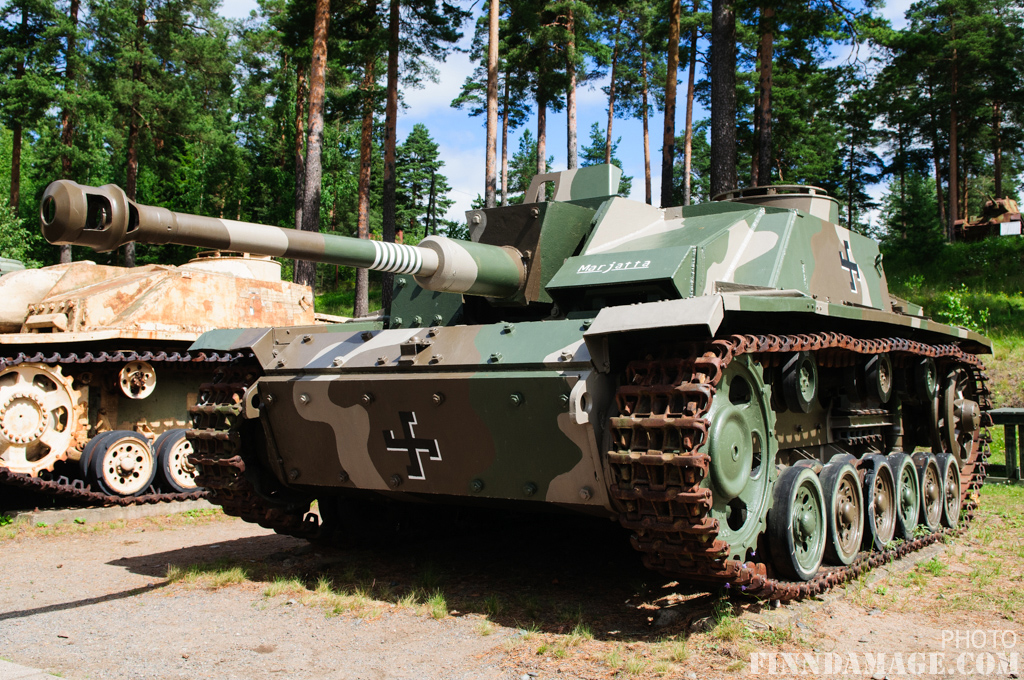
StuG III Ausf G at Parola Tank Museum
The StuG III, while not intended to engage enemy armor, could easily defeat Soviet light tanks thanks to their armor-piercing rounds that could penetrate some 34 mm of armor at 1 km. Besides seriously underestimating the enemy's combat strength and resolve, the German intelligence office also failed to pick up on the new Soviet tank designs, the T-34 and the KV series .
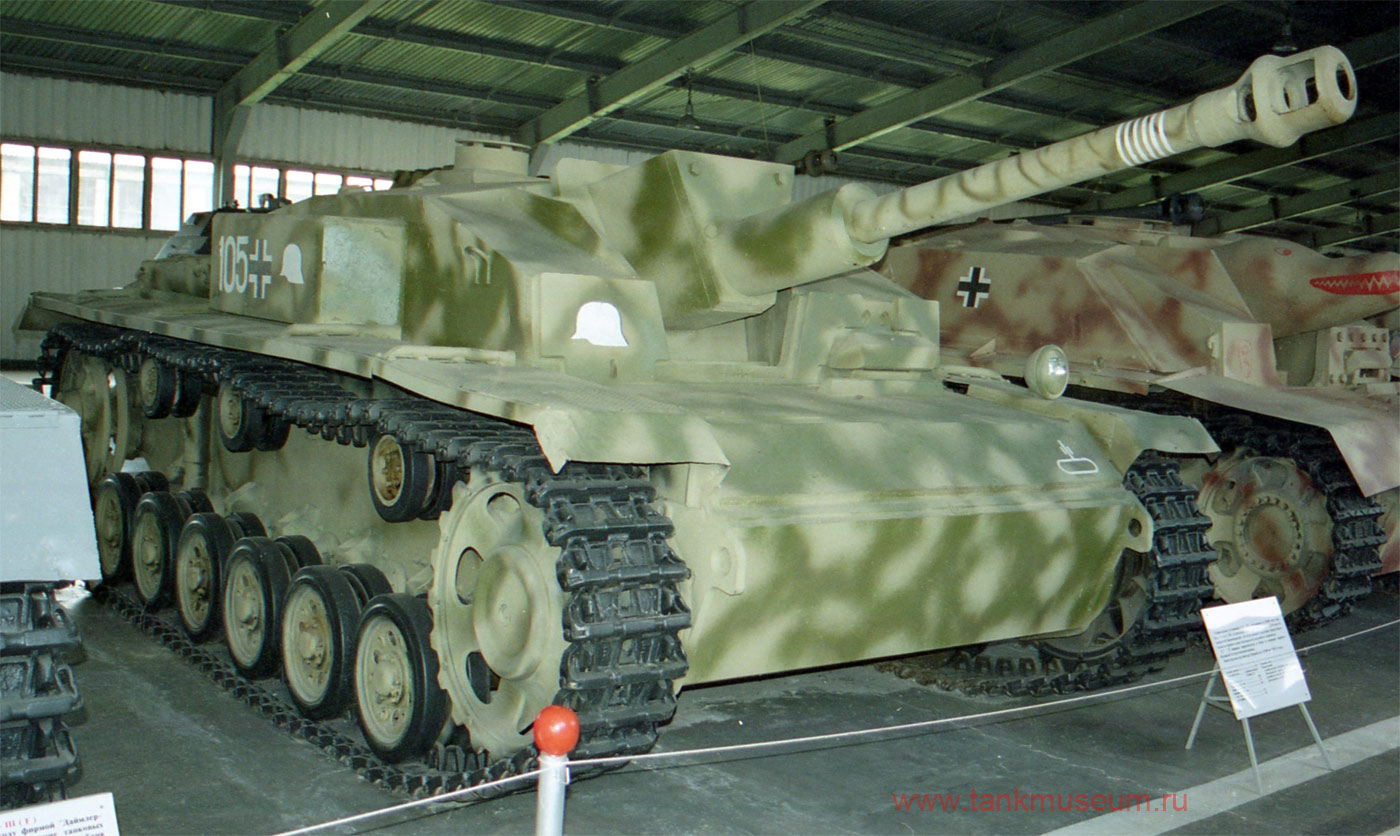
German Assault gun StuG III Tank museum Patriot park Moscow
Sturmgeschütz (abbreviated StuG) meaning "assault gun" was a series of armored fighting vehicles used by both the German Wehrmacht and the Waffen-SS formations during the Second World War (1939-1945). The main StuGs were the StuG III and StuG IV based on the Panzer III and Panzer IV medium tank chassis respectively.

German Tank WWII StuG III Gray. Side View. Wehrmacht`s Most Massive Tank during World War 2
April 14, 2021 9 Comments Contents: Sturmgeschütz concept The first StuG IV A new start Production Name Specifications The Hull The Superstructure Suspension and running gear The Engine and Transmission The Armor Protection The Crew and Radio The Armament Distribution to units Combat Other Operators Modifications Surviving vehicles Conclusion
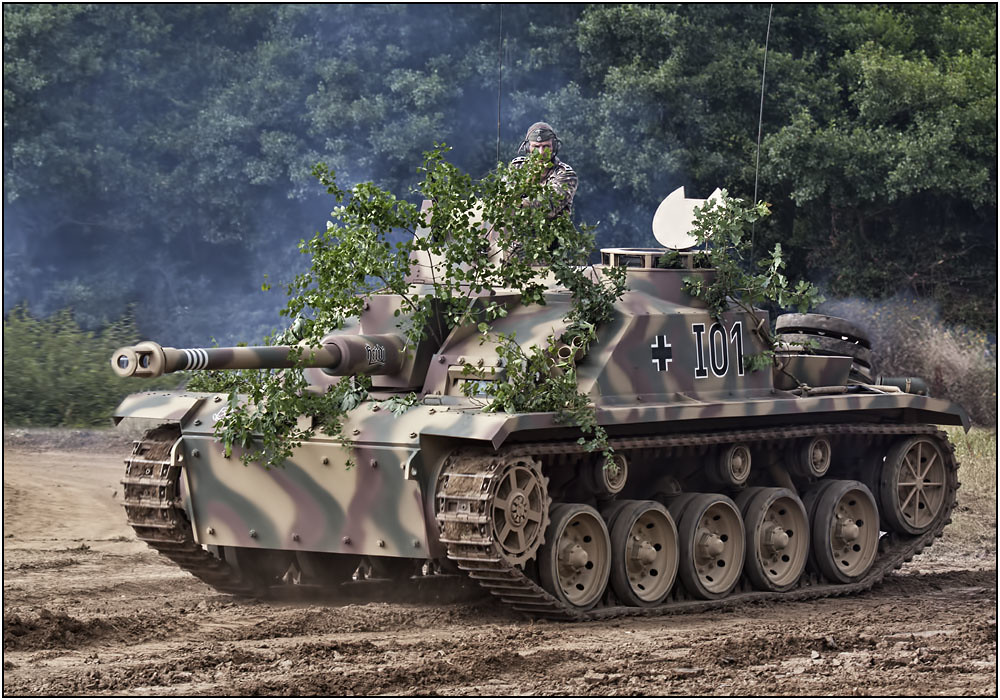
Stug III German WW2 Sturmgeschütz III Tank Destroyer. The … Flickr
An assault gun (from German: Sturmgeschütz, lit. 'storm gun', meaning "assault gun") [1] is a type of self-propelled artillery [2] which uses an infantry support gun mounted on a motorized chassis, normally an armored fighting vehicle, [3] which are designed to provide direct fire support for infantry attacks, especially against other infantry o.

StuG 40 Ausf G with zimmerit and saukopf Eastern front World War Photos
This bulge in the front, which was the closest German frontline to Moscow, had been attacked continuously during the course of 1942 and consequently the assault guns of StuG Battalion 667 were badly needed. And it was here that Primozic would begin to make a name for himself, destroying many Russian tanks.

Sturmgeschütz III G StuG III German Tank in Aktion a little bit YouTube
The Sturmgeschütz III ( StuG III) was an assault gun produced by Germany during World War II. It was the most-produced fully tracked armoured fighting vehicle, and second-most produced German armored combat vehicle of any type after the Sd.Kfz. 251 half-track.
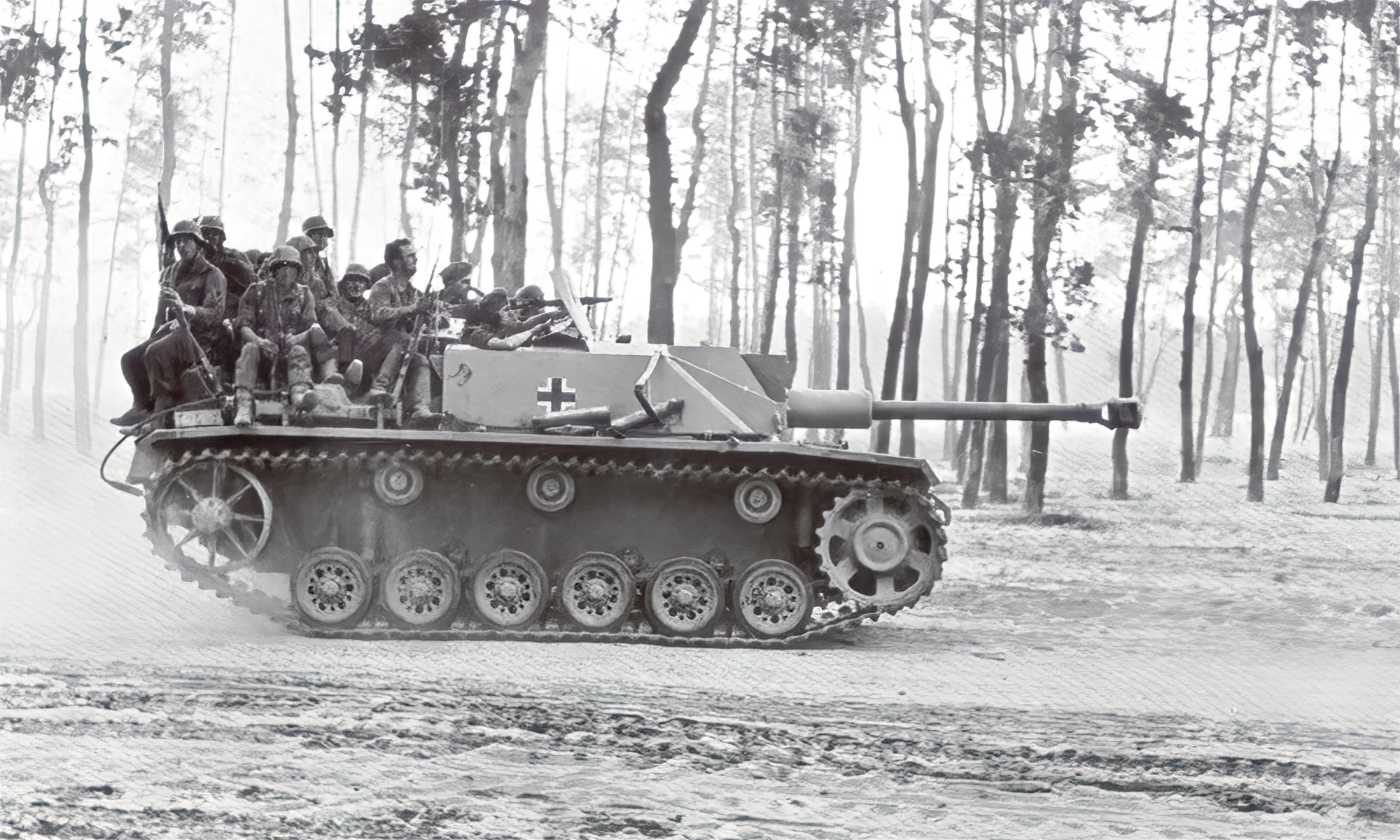
German self propelled artillery Sturmgeschutz StuG III tank 01
The most prolific German AFV Production data does not lie. Although quite underrated by Allied intelligence during WW2 and still somewhat underestimated today, the StuG III was, nonetheless, the most produced tracked German AFV during the conflict. Its evolution mirrored that of the more famous Panzer IV.

Stug 40 in Overloon. Tanks military, German tanks, Military vehicles
Stug III or Sturmgeschütz III: Best German Tank Destroyer of World War 2 This post is also available in: Magyar (Hungarian) Deutsch (German) language Published: 16/08/2023 | Last Updated on 20/09/2023 Development of Stug III Assault Gun Design and Prototypes Technical details of Sturmgeschütz III Dimensions Armour Suspension Engine and transmission

German StuG III and Stuh 42 in the Ardennes, 1944 (1587 x 1049) [Colorized] HistoryPorn
The StuG is one of the most successful of all of Germany's armored vehicles used during the Second World War. Small, cheap, and packing a punch, the StuG maximised efficiency. It exemplifies why the much-discussed "iron triangle" of mobility, firepower and protection has little practical impact on a vehicle's actual procurement and success.

Perfect Armor STUG III
Germany Number produced 10000 Main Utility Type Tank Destroyer Main Weapon 1 x 75mm Stuk 40 gun Crew 4 Weight 23.9 tonnes Speed 40km/h, 25mph Armour 80mm Full Name Sd Kfz 142/1 7.5cm Sturmgeschütz Ausf G Produced by

Old German Tank, StuG III Ausf F/8 Editorial Stock Image Image of belgrade, world 96832854
Contributing to the cult status of StuG was the fact that it was the most produced armored fighting vehicle of Nazi Germany. Based on a chassis of the mass produced Panzer III, the Sturmgeschütz III (hence the mark) overwhelmed the European fronts, numbering more than 10,000 units.

German Stug IV Military vehicles, Tank destroyer, Military armor
Sturmgeschütz III Ausf. G tank destroyer specification. Creator/User: Germany Denomination: Sturmgeschütz III Ausf. G Number produced (StuG III) : 9408. Length: 6,85 m Width: 2,95 m Height: 2,16 m Weight: 23,900 kg Maximum speed: 40 km/h Operational range: 155 km. Main armament: one 7,5 cm StuK 40 L/48 gun (54 rounds)
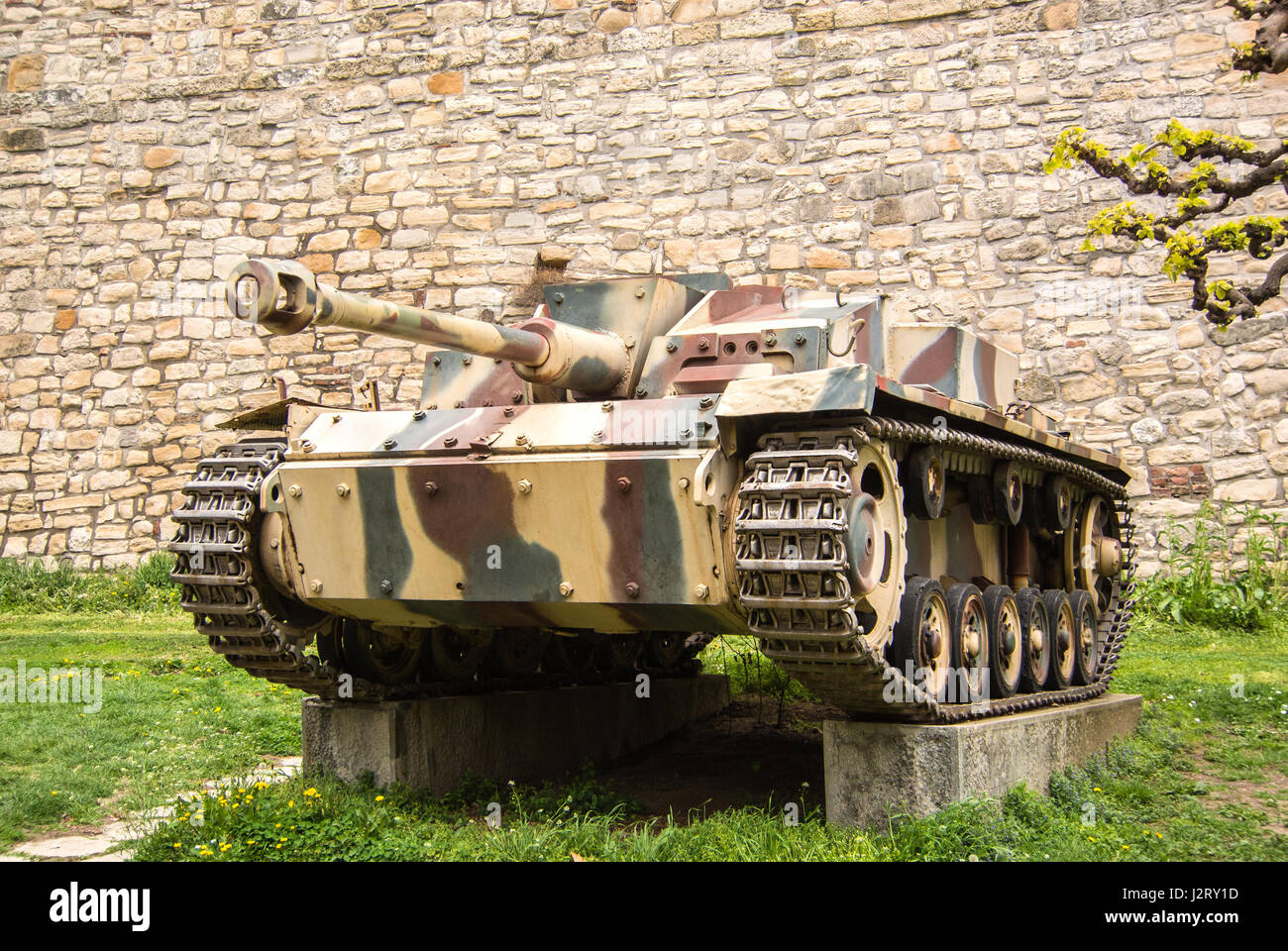
StuG III German assault Tank verwendet im zweiten Weltkrieg Belgrader Militärmuseum
The Sturmgeschütz III, or Stug 3 assault gun, was the most widely produced German combat vehicle of the Second World War. Like the Panzer IV, it was the only.
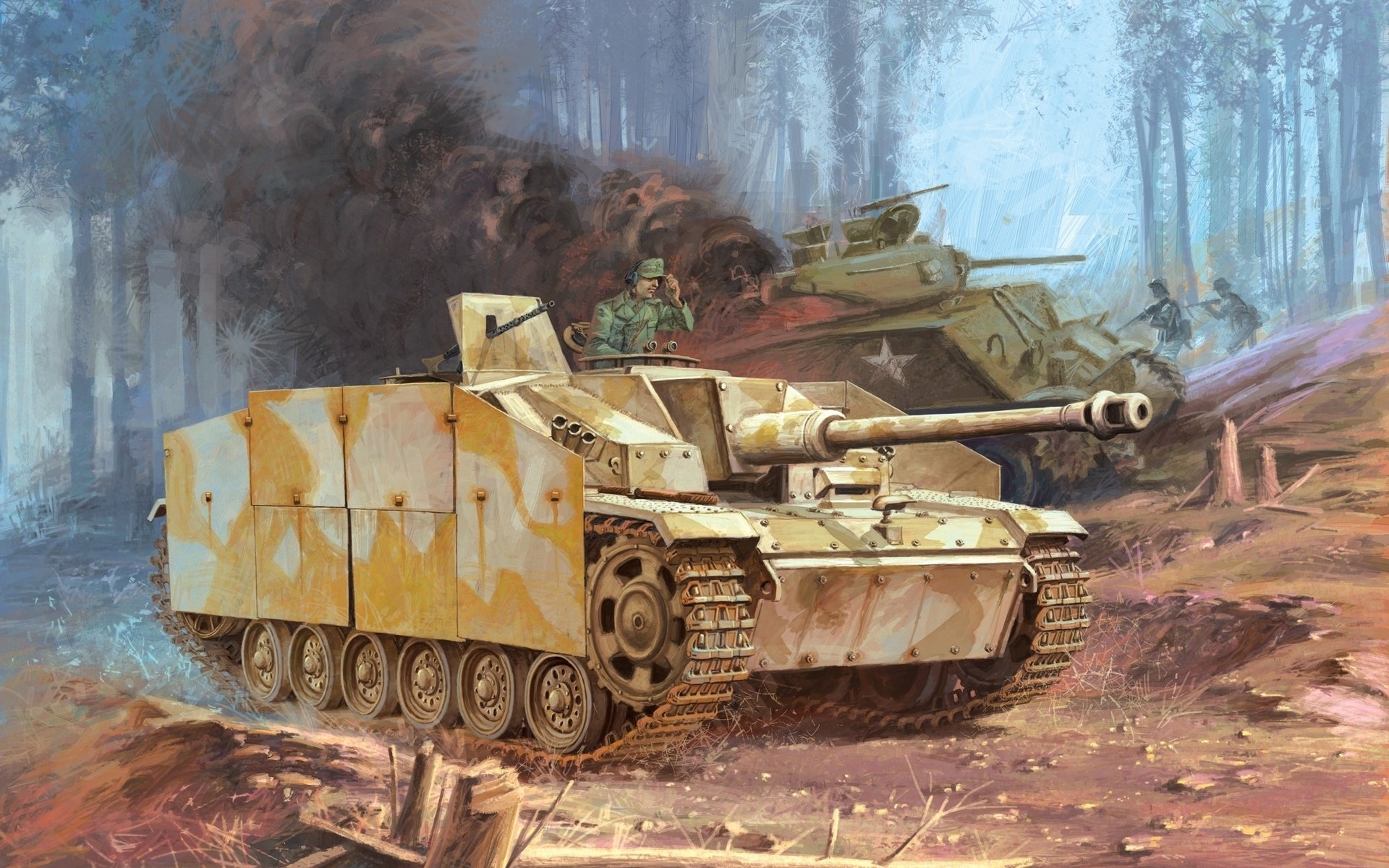
German Stug III Passes a knocked out M4 Sherman
Remote Control Tank Fahrschul Sturmgeschütz Surviving Vehicles Conclusion StuG III Ausf.C and D specifications Sources German Reich (1941) Assault Gun - 50 Ausf.C and 150 Ausf.D Built Following the Ausf.A and Ausf.B, the next vehicles in the line of the highly successful StuG III series were the identical Ausf.C and D.

German Assault Tank StuG III/B Panzer Tank destroyer, Tank armor, Military armor
By Slaven Radovic CC BY-SA 3.0. Sturmgeschütz (or StuG) was a series of self-propelled artillery used by the Wehrmacht during the Second World War. The most common version, the StuG III, was built on the chassis of the PzKpfw III tank and was originally called "StuG.". However, after the creation of the StuG IV, it received the name StuG III.